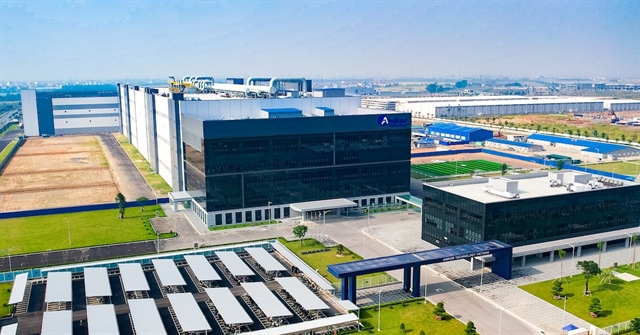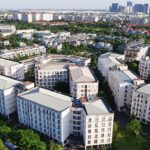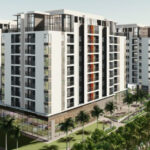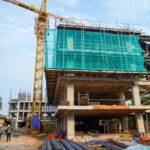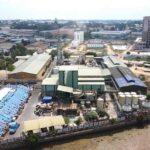4 Bottlenecks Stalling Businesses and Trapping Capital
At the Vietnam Industrial Park Development Forum 2025, held on May 29, Ms. Nguyen Thi Dung, Vice President of the Vietnam Industrial Real Estate Association (VIREA), assessed that in the context of the country entering a new stage of development, investing in industrial park infrastructure is not only an urgent need but also a potential opportunity.
While global investment capital tends to decline, Vietnam is swimming against the tide by attracting strong FDI. Notably, the real estate business field has reached 2.63 billion USD, creating a huge demand for industrial land and accompanying infrastructure.
However, Ms. Dung believes that industrial infrastructure development investment is facing four main bottlenecks.
These include complex administrative procedures with complicated approval processes, infrastructure planning that lacks synchronization and long-term vision, land clearance facing difficulties in compensation and resettlement, and infrastructure connectivity that lacks coordination.
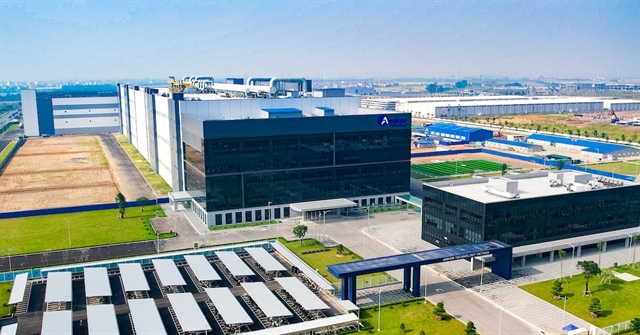 Vietnam Industrial Park Development Forum 2025, May 29. Photo: Hong Khanh |
“These bottlenecks stall businesses and trap capital, hindering investment efficiency. The limitations in site clearance affect the acceptance and finalization of projects, leading to the reality that there are roads that have been constructed for years but remain unused due to a lack of connectivity,” said Ms. Dung.
Speaking at the forum, Mr. Pham Thanh Binh, Director of the Northern Information, Promotion, and Investment Support Center, Foreign Investment Agency (Ministry of Finance), said that currently, there are 416 industrial parks in the country, with a total area of nearly 129,000 hectares. However, only six eco-industrial parks are being piloted with UNIDO support in Ninh Binh, Da Nang, Can Tho, and Ho Chi Minh City.
Mr. Binh frankly assessed that most industrial parks still operate under a traditional model, with dispersed treatment infrastructure and a lack of integrated logistics-innovation-training services, failing to maximize land and energy efficiency.
In terms of human resources, a report by the Ministry of Science and Technology shows that only about 15% of enterprises in industrial parks are capable of absorbing high technology or deeply engaging in the global value chain.
According to Mr. Nguyen Van Tien, Vice President of VIREA, Vietnam mainly attracts FDI in labor-intensive industries with low added value and limited technology spillover.
Therefore, advanced models such as eco-industrial parks, high-tech parks, and integrated parks are still limited in number. The shortage of high-quality labor, especially in the fields of automation and modern production management, is becoming more acute.
Transitioning to New Models: An Inevitable Requirement
Based on the above realities, Mr. Pham Thanh Binh emphasized that transitioning to smart industrial parks, eco-industrial parks, and industrial parks integrated with technology, innovation, and green logistics services is inevitable to maintain competitiveness in attracting high-quality investment.
According to Mr. Binh, industrial parks cannot exist as separate entities but must be integrated with urban areas, seaports, expressways, educational centers, and innovation hubs. This requires a change in development thinking towards an inter-sectoral approach, along with close coordination among localities in the region.
He also proposed developing specific criteria for licensing and operating smart and eco-industrial parks. At the same time, there should be preferential policies on taxes and credit for projects adopting water recycling, waste recycling, and clean energy usage, encouraging the circular industrial park model.
Regarding the prospects for industrial real estate, Ms. Nguyen Thi Dung shared that according to the plan by 2030, Vietnam is expected to have 221 new project plans, 74 expansion projects, 23 adjusted project plans, and 299 projects to be established when conditions are met.
Ms. Dung evaluated that this large-scale development is creating a favorable environment for businesses operating in the industrial infrastructure development field. Currently, the demand for land leasing is tending to shift to provinces and cities due to the increasingly scarce land fund in central areas.
Hong Khanh
– 20:29 05/29/2025
“Government Agency Leases Social Housing for Officials and Employees”
Introducing a revolutionary approach to staff accommodation – a game-changer for businesses and government agencies. We offer the opportunity to lease social housing, providing a stable and comfortable living environment for employees. This initiative fosters a sense of security and dedication among staff, knowing their accommodation needs are taken care of. Elevate your workforce’s morale and productivity with this innovative solution.
A Mandatory Industrial Park Relocation: “No Delays”
This industrial park boasts a 100% occupancy rate, a testament to its thriving business community and exceptional infrastructure.

